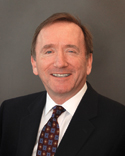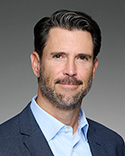
Michael Lastowski

Christopher Winter
In notable opinions issued in April, the Chancery Court cleared the way for the sale of Answers Corp., which operates Answers.com; and the Bankruptcy Court allowed an indenture trustee's claim for a make-whole premium, but denied payment of the claim from sale proceeds.
Earlier this month, the Chancery Court denied a shareholder motion to enjoin the sale of Answers.com to a private equity firm despite acknowledging that the company engaged in a limited market check for alternative bidders and that there was minimal evidence that the board of directors considered certain strategic alternatives.
Vice Chancellor John Noble in an April 11 opinion in In re Answers Corp. Shareholders Litigation, held that the price obtained and the process observed by the board of Answers Corp., including proxy disclosures, were adequate in the circumstances and that the plaintiff shareholders were unlikely to succeed on the merits of their challenge to the sale.
The court conceded that, in seeking alternative bidders, "the board could have conducted a more robust market test." Yet, the court found that the board's targeted effort to reach only potential buyers "most likely to be interested in a transaction" was "adequate" in the circumstances.
The court also rejected the plaintiff's assertion that the board failed to consider the merits of maintaining Answers as an independent, stand-alone enterprise.
"It is apparent ... that the board deliberated at some level on whether or not to pursue a business combination, even if only minimally and documented less than ideally."
Ultimately, the court found that the limited evidence did not demonstrate that the board acted unreasonably. In addition, the court found it significant that the proxy outlined several reasons why the sale of the company was a better option than continuing it as a stand-alone enterprise.
Answers was approached by private equity firm Summit Partners LP through its portfolio company, AFCV Holdings LLC, in March 2010 about a potential business combination. In July, the parties entered into a confidentiality agreement. In September 2010, Answers' board rejected an offer of between $7.50 and $8.25 per share and also engaged UBS as its financial adviser. AFCV subsequently increased its offer to $9 and then to $10.25, but conditioned the offer on entry into an exclusivity agreement.
On Nov. 15, 2010, the two sides agreed to move forward at $10.25 without exclusivity, but Answers agreed to reimburse AFCV's expenses if Answers sold to a different bidder at a higher price. Answers, through UBS, reached out to 10 entities that it identified as likely potential buyers. As a result of the limited solicitation, Answers entered into three confidentiality agreements but did not receive any competing offers. While the merger agreement was being negotiated, the board presented AFCV with improved performance data and forecasts and negotiated the price per share up to $10.50. On Feb. 2, the board met, received a fairness opinion from UBS based on the $10.50 share price and approved the sale transaction. A shareholder vote was scheduled for April 12, and a proxy statement was filed on Feb. 7 and was subsequently supplemented. The shareholder vote was continued from April 12 to April 14.
Noble in a 27-page opinion also found that the board was reasonable in relying on the UBS fairness opinion and that the proxy statement made a full and fair disclosure of all material information within the board's control. The opinion further discusses plaintiff's challenges to valuation, the company's relationship with and dependence upon Google, and the plaintiff's assertions of director conflicts.
In addition, in a very brief opinion handed down on April 13, the court declined plaintiff shareholders' application to further delay the shareholders' meeting to allow consideration of a competing offer received on April 9, from Brad D. Greenspan. Greenspan offered $13.50 per share of common stock to acquire a controlling interest in Answers.
However, as recounted in In re Answers Corp. Shareholders Litigation, on April 10, the board rejected the Greenspan offer, finding, among other things, that there were problems with Greenspan's ability to finance and close its offer. In addition, the court found the timing of the Greenspan offer suspect.
The court reasoned, "The lobbing-in of a flimsy offer three days before the stockholders' meeting cannot, as a general matter, be cause for an extended court-ordered delay."
On April 14, Answers announced that its stockholders approved the merger at a special meeting of stockholders and that the AFCV acquisition was consummated.
On April 15, Judge Brendan L. Shannon rendered an opinion in In re Trico Marine Services Inc., in which he determined the validity and priority of a make-whole premium in the context of a dispute over the distribution of proceeds of a sale under 11 U.S.C. § 363. Although he held that the make-whole premium gave rise to a claim that was not disallowable as a claim for unmatured interest under 11 U.S.C. § 502(b)(2), he found that, despite specific language in a sale order to the contrary, the debtors were not obligated to pay the claim in full.
In Trico, one of the debtors (TMI) financed the construction of two supply vessels through the issuance of notes in the amount of $18,867,000 (the obligations). The notes are governed by a trust indenture. The obligations were unsecured. However, to induce an extension of credit to TMI, the U.S. secretary of transportation, on behalf of the Maritime Administration (MARAD), guaranteed the obligations. The guarantee applied only to "interest" and "principal."
The debtors sold the vessels under Section 363. In exchange for its consent to the sale, MARAD required the debtors to redeem the obligations in full to assure that the indenture trustee would not call upon the guarantee. At the closing of the sale, the indenture trustee received a payment representing outstanding principal and interest and certain expenses due under the obligations.
The obligations also contained the make-whole premium, which required TMI to make an additional payment in the event that TMI were to redeem the obligations. Although the debtors disputed the validity and the priority of the Make-Whole Premium, they agreed on the amount ($535,000), which was placed in escrow pending resolution of the parties' dispute.
The debtors argued that the make-whole premium was a claim for unmatured interest, which was subject to disallowance under 11 U.S.C. § 502(b)(2). In the alternative the debtors argued that the make-whole was a general unsecured claim, since it was not subject to MARAD's secured guarantee.
The indenture trustee contended that, under the court's sale order, it was entitled to payment in full upon proving that the Make-Whole Premium gave rise to an allowed claim. In the alternative, the indenture trustee contended that the Make-Whole Premium was subject to the guarantee and that the indenture trustee could pursue MARAD for payment directly.
Shannon ruled in favor of the debtors.
Since the guarantee only applied to "principal" and "interest," the indenture trustee could prevail on a claim under the guarantee only to the extent that the make-whole premium represented "interest." Shannon noted that there was a split among bankruptcy courts that had addressed the issue of whether make-whole or prepayment obligations represent "unmatured interest" or "liquidated damages." Shannon followed the majority rule and characterized the obligations as "liquidated damages." Accordingly, the make-whole premium was outside of the scope of the guarantee.
Further, the make-whole premium was not a claim for unmatured interest subject to disallowance under 11 U.S.C.§ 502(b)(2). The indenture trustee therefore held an allowed claim for the make-whole premium.
The terms of the sale order provided for the creation of the escrow and expressly stated that, if there were a consensual resolution of the issues relating to the make-whole premium, the debtors were "authorized and directed" to pay to the indenture trustee the amount that was agreed to in such a resolution. Otherwise, the amount of any payment would be determined by the bankruptcy court.
Shannon rejected the indenture trustee's reliance upon these terms of the sale order. First, he noted that the sale order included the standard paragraph providing that any liens on the vessels would attach to the proceeds of the sale with the same validity and priority that the liens had on the vessels immediately prior to the sale. To allow the indenture trustee to recover would be tantamount to creating a new senior lien, in violation of this paragraph of the sale order. Second, allowing payment in full, on account of an unsecured claim, would violate the absolute priority rule set forth in 11 U.S.C. § 1129(b)(2).
From the perspective of the indenture trustee, the result may seem harsh. A literal reading of the specific language in the sale order addressing the make-whole premium would have resulted in a decision in favor of the indenture trustee. However, as Shannon observed, the escrow and the related language in the sale order were only meant to preserve the parties' respective rights post closing and were not meant to alter the parties' respective economic interests or legal positions.
Michael Lastowski is a member of Duane Morris and the head of its Wilmington office. Licensed to practice in Delaware, Pennsylvania and New York, he primarily represents Chapter 11 debtors. Christopher M. Winter, a Duane Morris partner, is a Delaware business lawyer who focuses his practice on Chapter 11 bankruptcy law and proceedings, commercial and corporate finance and transactions and Delaware corporate and alternative entity law.
Reprinted with permission from Delaware Business Court Insider, © ALM Media Properties LLC. All rights reserved.









